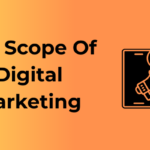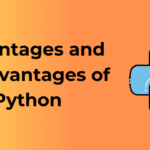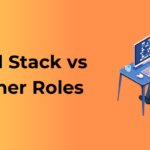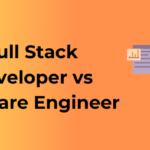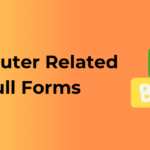Taking your first steps into the world of coding can feel both exciting and a little overwhelming. But don’t worry, like learning any new skill, it’s a journey, and the first steps you take can set you up for success.
If you’re still figuring out which direction to take, exploring different computer course names-from beginner to advanced-can help you understand your options and make a confident start. Let’s break it down together!
Exploring Learning Options: Online Courses Vs. Schools
So, you’re ready to embark on your coding journey awesome choice! But now you’re stuck deciding where to learn: should you take the leap with online courses or go for the structure of traditional schools? Don’t worry, you’re not alone in facing this dilemma. Let’s break it down and explore your options together.
Online Courses: The Flexible Self-Starter’s Dream
If flexibility and affordability are what you’re after, online courses might just be your perfect match. Platforms like freeCodeCamp, Codecademy, and Udemy offer affordable or free options that cater to a variety of skill levels from absolute beginners to seasoned pros looking to learn a new language.
- Pros of online courses:
- Freedom to learn at your own pace. Whether you want to dedicate two hours a day or just a quick 30-minute session before bed, it’s all up to you.
- Cost-effective, with many free resources or one-time fees available.
- Large variety of topics, instructors, and tools to choose from everything from Python for beginners to advanced machine learning.
- Cons of online courses:
- You need to hold yourself accountable. Without a set schedule, procrastination can creep in.
- Lack of face-to-face interaction, which can make troubleshooting and motivation a little tougher.
Are you someone who loves the idea of learning in your pajamas and setting your own schedule? If so, online courses could be an ideal fit.
Coding Bootcamps and Traditional Schools: Structure and Depth
Now, traditional schools or coding bootcamps are a different ballgame. They provide a structured, hands-on learning environment that’s perfect if you crave in-person collaboration or need that external pressure to stay on track. Schools like General Assembly, Flatiron School, and local universities have extensive programs designed to immerse you in the world of programming.
- Pros of schools and bootcamps:
- Access to experienced instructors who guide you through challenges (and trust me, there will be challenges).
- A structured curriculum that ensures you stay on the right path without skipping critical steps.
- Opportunities for networking schools and bootcamps often connect you with peers and industry professionals.
- Cons of schools and bootcamps:
- The cost. These programs can get pricey, often running into the tens of thousands of dollars.
- Limited flexibility. Classes and deadlines are on their schedule, not yours.
If you thrive on collaboration and need external motivation to stay consistent, school-based programs or immersive bootcamps could be the right choice for you.
Time Commitment: Balancing Daily Life and Code Practice
Ah, time. The most precious commodity we all seem to have so little of! If you’re considering learning to code, you’re probably thinking, “How on earth do I fit this into my already busy schedule?” Don’t worry—you’re not alone, and the good news is that learning to code doesn’t have to mean sacrificing your entire life or giving up on binge-watching your favorite shows entirely (phew!).
It’s Not About Quantity, It’s About Consistency
First things first: coding is not something you can master overnight, but it’s absolutely something you can tackle a little bit at a time. Many beginners think they need to spend hours and hours each day in front of a screen to make progress, but that’s a recipe for burnout.
The key here is consistency over intensity. Dedicating even just 30 minutes to an hour a day to coding can make a massive difference over time. Think of learning code like going to the gym. You don’t need to lift the heaviest weights right away—start small, get into a groove, and build from there.
Setting Up a Daily Routine
To balance coding with your daily life, having a well-thought-out routine is essential. Here’s an example plan:
- Mornings: If you’re an early bird, consider dedicating some quiet time in the mornings to educational videos, tutorials, or coding exercises before work or school.
- Lunchtime or Breaks: Use short breaks to read coding documentation or play with code snippets on your phone or laptop. Consider this your bite-sized coding snack!
- Evenings: Dive deeper into larger projects or courses. Use this time to focus without distractions.
Can’t stick to daily coding? That’s okay! Even committing to 3-4 focused sessions a week can yield great results, especially when you make those moments productive.
Utilize “Lost” Time
You’d be surprised how many pockets of time are hiding in your busy life. Stuck on public transportation? Watch a coding tutorial. Standing in line at the grocery store? Pull up a quick coding lesson on an app. These little moments can add up and help keep the momentum going.
Combatting the “No Time” Myth
One of the biggest barriers people face when deciding to pick up coding is the belief that they “just don’t have time.” But here’s the hard truth: you’re never going to magically find time—you have to make time.
This might mean reprioritizing. Maybe cutting down on social media scrolling by 30 minutes a day or trading one TV episode for a coding session. Think of it like an investment; every minute you spend coding now means a step closer to the career, skills, or projects you dream of.
Difficulty Levels: Simple Scripts to Advanced Systems

Okay, so you’ve decided to learn coding! That’s awesome. But let’s be real at first, you might wonder, “How hard can this be?” Well, coding is like climbing a hill that turns into a mountain. It’s not impossible to reach the peak, but to get there, you need to take it one step at a time.
Start Small: The World of Simple Scripts
When you’re just starting, the tasks you’ll tackle might feel like solving puzzles. Fun, right? Simple scripts are often your first coding experiments. Things like printing “Hello, World!” to the screen (the universal newbie milestone) or creating a program that gently reminds you to drink water every hour. These easier projects help you understand the basics: syntax, variables, and loops.
Pro tip: Don’t skip the small stuff! Nailing these fundamental concepts is crucial for when you move on to trickier topics.
- Languages to try: Python or JavaScript they’re beginner-friendly!
- Time to learn: A few weeks of consistent effort with simple tutorials will do the trick.
Leveling Up: Medium Complexity Projects
Once you’ve got a handle on basic scripts, you’ll move on to somewhat more challenging tasks. These could include creating a to-do list app, building a simple calculator, or coding a basic website with HTML, CSS, and JavaScript. This is where things might feel overwhelming but hang in there; every breakthrough moment will feel incredibly satisfying.
Tip: As you enter this stage, pay attention to debugging. (Yes, bugs are inevitable!) Learning how to troubleshoot and solve problems is as important as writing the code itself.
- Start using GitHub to manage your code it’s an invaluable skill for collaboration later.
- Practice frequently, as repetition reinforces your learning.
- Experiment with frameworks like React or Flask for web and app development.
The Advanced Stage: Building Complex Systems
Now, we’re talking about coding’s elite level designing complete systems. Think creating and managing databases, implementing algorithms, or developing a fully functional web application with backend support. Sounds intense? It is! But by the time you’re ready to tackle these, you’ll have a strong foundation to lean on.
Here’s where you start integrating your code with APIs, learning about cloud services, and thinking about scalability. You’re no longer just coding; you’re problem-solving and designing systems that people might actually use. How cool is that?
Expect the challenge: Advanced coding can involve steep learning curves in concepts like object-oriented programming (OOP), custom algorithms, or frameworks like Django or Node.js. But don’t let that stop you. Stay curious and keep learning.
Practical Application: How Projects Affect Speed of Learning
Let’s talk about something exciting projects! If you’re diving into coding, you’ve probably heard this piece of advice floating around: “Work on a project!” But why are projects so crucial to speeding up your learning process? Grab a cup of coffee (or tea, no judgment here), and let’s break it down, step by step, in the most relatable way possible.
Why Projects Matter
Imagine learning to swim without ever stepping into a pool. Sounds odd, right? That’s precisely what learning to code without working on real-life projects is like. Projects go beyond theory and tutorials—they put your skills into action! They allow you to practice problem-solving, debug real issues, and see how all those coding concepts slot together into something functional, just like a jigsaw puzzle coming to life.
The Hands-On Learning Advantage
By tackling projects, you’re actually immersing yourself in coding. Here are some core benefits:
- Reinforces What You Learn: Concepts like loops, conditional statements, or API calls stick better when you apply them in real scenarios.
- Puts Theory Into Context: Let’s say you’ve learned what an array is; with projects, you’ll see how arrays can store user data, recipes, or even game scores!
- Helps You Debug: Oh, the joys and frustrations of debugging code! While tough at first, this is one of the most practical skills to learn. Projects teach you how to think like a detective.
Small Projects Can Have Big Impacts
One of the best parts? You don’t need to build the next Facebook or develop a groundbreaking AI to see progress.
- Start Small: A to-do list app is a beginner’s bread and butter! It teaches you about variables, user input, and logic all in one go.
- Intermediate Mile Markers: Move to fun projects like a weather app (perfect to learn APIs) or a basic portfolio website (HTML and CSS for the win!).
- Reach for Advanced Goals: Over time, build something bigger and more complex, like a blog platform or a simple e-commerce site. Trust me, these can boost confidence exponentially.
How Projects Impact Speed of Learning
Here’s the deal: If you work on projects regularly, you’ll see an incredible difference in how quickly coding concepts click for you. They mimic real-world challenges better than any tutorial can, giving you a realistic learning curve instead of just theoretical lag. You’ll encounter the “Aha!” moments more often when you figure out how one code snippet leads to a functional feature.
The Role of Mentors and Communities in Speeding up the Process

Let’s be honest—learning coding can sometimes feel like being dropped into the deep end of a pool without a life jacket. All those lines of text, mysterious errors, and endless debugging sessions can quickly turn into overwhelming hurdles. Thankfully, there’s one lifeline that can make the process not just faster, but also much more enjoyable: mentors and communities!
Why Mentors Are Game-Changers
A mentor is like having a GPS for your coding journey. They’ve been where you are, made all the common mistakes, and emerged on the other side as experienced developers. Here’s what makes them essential:
- Guidance: Instead of spending hours Googling the same error, a mentor can guide you to the solution in minutes. They know the shortcuts, the key concepts you must grasp, and what is just noise you don’t need to worry about right now.
- Motivation: Coding can be frustrating at times. A mentor provides encouragement, helping you shake off imposter syndrome and reminding you that struggling is part of learning.
- Personalized Feedback: Unlike tutorials or online resources, mentors tailor their advice to your unique level and learning pace. They suggest projects, tools, and career paths aligned with your strengths and interests.
If you’re wondering where to find a mentor—not to worry. Many people connect with mentors in online coding communities, during hackathons, or via platforms like LinkedIn. Some coding bootcamps and online platforms even pair learners with experienced developers directly.
Communities: Coding Together Makes a Difference
Let’s talk about coding communities—they’re like the friendly neighborhood of the programming world. Joining a supportive group of like-minded learners not only keeps you motivated but also boosts your progress. Here’s why you’ll love being part of one:
- Peer Support: Communities are filled with individuals at various stages of their journey. You can find people who are just starting out like you, as well as experienced ones who happily share advice!
- Resource Sharing: Members often recommend the best tutorials, cheat sheets, tools, and even job opportunities that you wouldn’t find as easily on your own.
- Collaboration Opportunities: Working on projects with others teaches you teamwork, collaboration tools like Git, and real-world problem-solving skills essential for coding jobs.
- Networking: Developing friendships and professional connections can open doors to mentorships, job referrals, or just good camaraderie over shared challenges.
How to Get Involved
Getting plugged into the right communities doesn’t have to be intimidating. Look for:
- Online forums like Stack Overflow or Reddit: These are great for asking questions and learning from others.
- Discord servers or Slack groups: Many niche coding communities have active groups where you can chat in real-time.
- Local meetups: Platforms like Meetup offer in-person events where you can connect with nearby coders.
- Social media: Twitter hashtags or LinkedIn posts about coding can help you engage with professionals and learners alike.
Setting Realistic Expectations: Different Goals, Different Timelines
Let’s face it when it comes to learning coding, there’s no one-size-fits-all timeline. Everyone’s journey will look a little different, and that’s completely okay! The timeline depends on what you’re hoping to achieve, how much time you can dedicate, and the specific challenges of the path you choose. So, let’s break it down.
First, Define Your Goals
The first question to ask yourself is: Why do I want to learn coding? Your goal will have a huge impact on how long it takes to feel confident about your skills. Here are a few examples:
- Are you learning for fun? If coding is a hobby, you can take your sweet time. No pressure, right?
- Want to automate a personal task? Picking up a specific language like Python and completing a small project could take as little as a few weeks.
- Dreaming of a career change? Mastering essential skills for a job in tech (e.g., web development, data science) may require several months or even a year of consistent effort.
It’s crucial to keep in mind that the “end result” varies dramatically depending on your vision. Whether you aim to build interactive websites, create mobile apps, or dive into AI, the path will naturally change in length and complexity.
Forget the Idea of Overnight Mastery
We’ve all seen those clickbait ads: “Learn to code in 3 months!” While that might be plausible if you’re learning full-time and highly focused, most people will need more time than that especially if juggling work, family responsibilities, or school.
Be patient with yourself. Learning to code isn’t about cramming information; it’s about developing a thought process and skills you can apply to real-world problems. Slow and steady wins the race here!
Learning at Your Own Pace
What does your life look like right now? Some savvier coders squeeze in a few hours between work or during weekends, whereas others dedicate their evenings. Your learning timeline will depend on:
- Time availability: A few hours per week will naturally take longer than daily intensive practice.
- Prior experience: Do you have zero tech knowledge, or are you already comfortable using computers? Beginners often need extra time to master the basics.
- Age isn’t a limit, but familiarity matters: Someone already in the tech world might feel more at ease navigating logical concepts than a complete newbie. It’s all about exposure.




